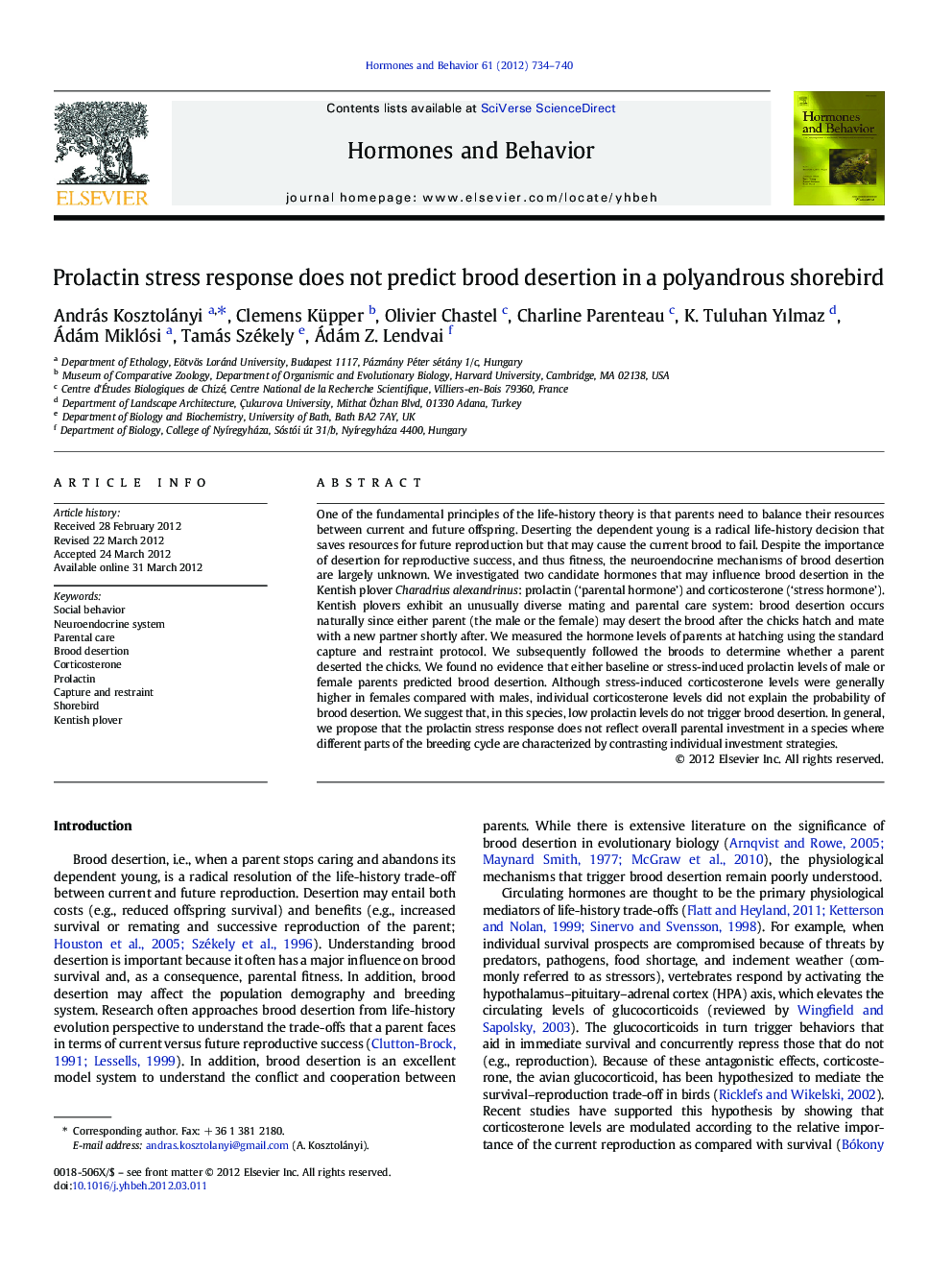| کد مقاله | کد نشریه | سال انتشار | مقاله انگلیسی | نسخه تمام متن |
|---|---|---|---|---|
| 323434 | 540671 | 2012 | 7 صفحه PDF | دانلود رایگان |

One of the fundamental principles of the life-history theory is that parents need to balance their resources between current and future offspring. Deserting the dependent young is a radical life-history decision that saves resources for future reproduction but that may cause the current brood to fail. Despite the importance of desertion for reproductive success, and thus fitness, the neuroendocrine mechanisms of brood desertion are largely unknown. We investigated two candidate hormones that may influence brood desertion in the Kentish plover Charadrius alexandrinus: prolactin (‘parental hormone’) and corticosterone (‘stress hormone’). Kentish plovers exhibit an unusually diverse mating and parental care system: brood desertion occurs naturally since either parent (the male or the female) may desert the brood after the chicks hatch and mate with a new partner shortly after. We measured the hormone levels of parents at hatching using the standard capture and restraint protocol. We subsequently followed the broods to determine whether a parent deserted the chicks. We found no evidence that either baseline or stress-induced prolactin levels of male or female parents predicted brood desertion. Although stress-induced corticosterone levels were generally higher in females compared with males, individual corticosterone levels did not explain the probability of brood desertion. We suggest that, in this species, low prolactin levels do not trigger brood desertion. In general, we propose that the prolactin stress response does not reflect overall parental investment in a species where different parts of the breeding cycle are characterized by contrasting individual investment strategies.
► Brood desertion is a common breeding strategy in the polyandrous Kentish plover.
► Prolactin and corticosterone levels were measured at hatching of the young.
► Prolactin levels were not different between the sexes.
► Neither baseline nor stress-induced prolactin levels predicted brood desertion.
► Stress-induced corticosterone levels were higher in adult females than in males.
Journal: Hormones and Behavior - Volume 61, Issue 5, May 2012, Pages 734–740